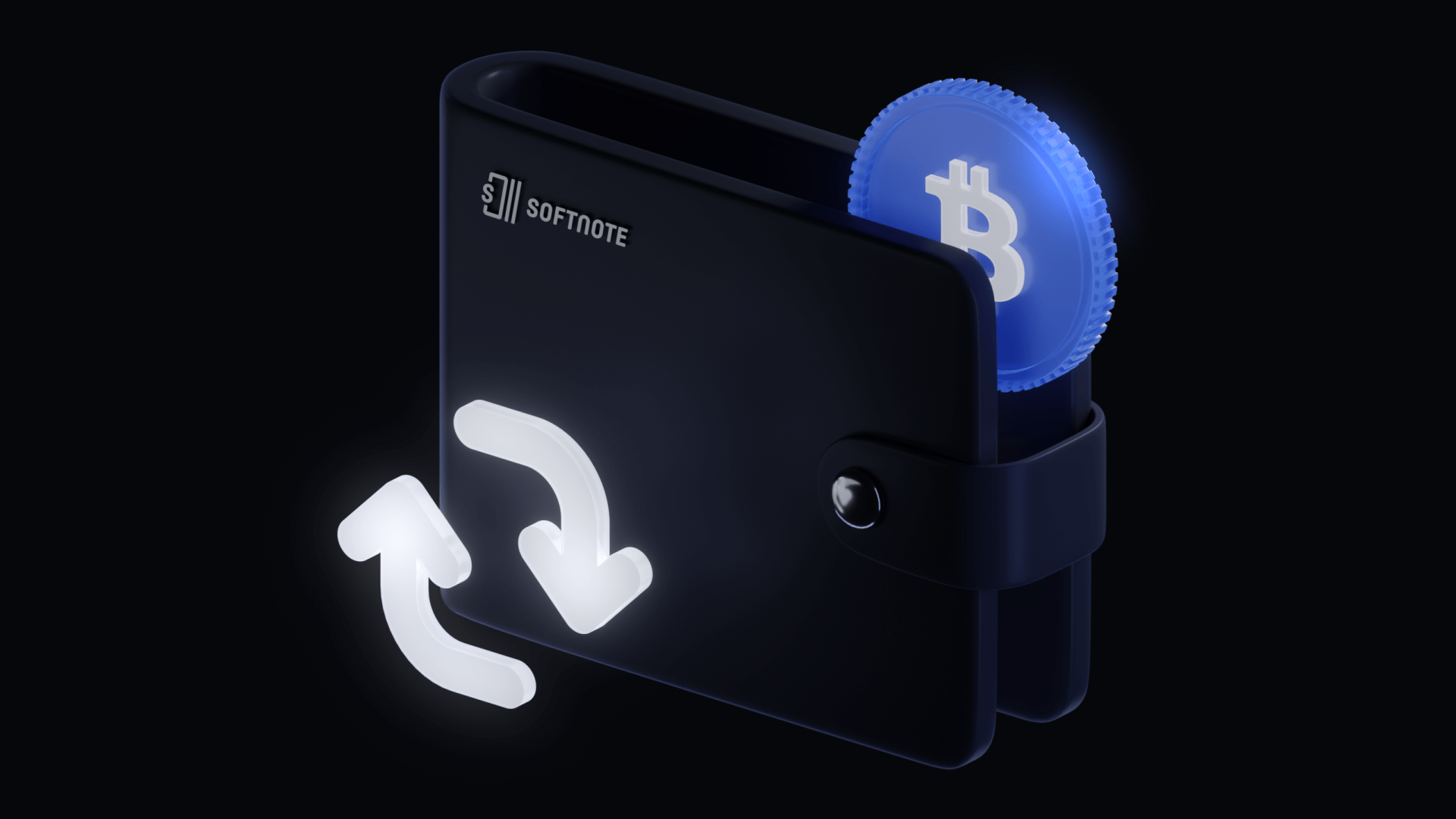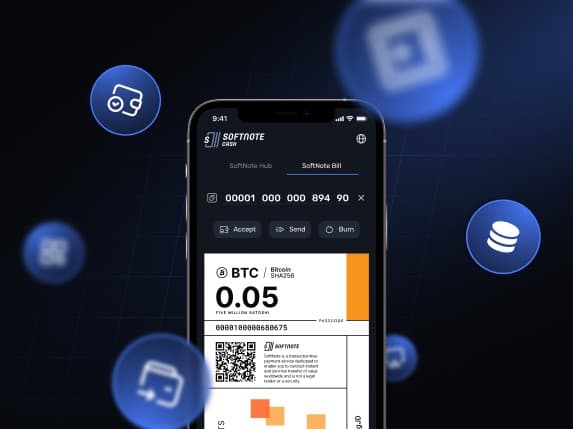Cryptocurrency taxation laws can be confusing, especially as they vary for various countries and events. One reason is that the government focuses more on stopping people from using crypto than understanding the technology. As a result, they sometimes make confusing and somewhat contradictory umbrella laws.
This article will, as humanely as possible, outline cryptocurrency tax laws as they apply to different events. We hope to answer the question, “Is transferring crypto a taxable event?” First, let’s examine a central rule that applies to sending blockchain tokens from one wallet for cryptocurrency to another.
Is Sending Crypto to Another Wallet Taxable? The Core Rule
What is the core rule of cryptocurrency transfer? Is sending crypto to another wallet taxed? If you send a wallet from one of your accounts to another, such an event is not taxable. It is not uncommon for people to create blockchain wallets with multiple platforms. Different crypto storage platforms have their respective advantages and benefits.
While Binance Wallet has the allure of being connected to a centralized exchange, SoftNote offers users more control as a noncustodial wallet. As such, people can open multiple accounts and transfer their portfolios between these two platforms for various purposes. In this case, the crypto transferred across different wallets is not taxable. It is the same as sending money from one of your bank accounts to the other.
When Is Sending Crypto to Another Wallet Taxable? Key Exceptions

While moving crypto between your wallets isn’t taxable, ownership changes or conversions trigger obligations. According to the IRS, ownership change is superior to wallet address change. Therefore, taxes do not apply to transactions involving multiple wallets belonging to the same owner.
One exception is sending someone blockchain tokens as a gift. Sending crypto to someone else’s wallet counts as a gift. If the amount gifted exceeds $18,000 (2024), the recipient must file the IRS Form 709. Even smaller gifts can pile up and eat into your lifetime exemption, so track them all.
The IRS also interprets paying for goods and services with crypto as a sale. If you buy a $30,000 car with Bitcoin purchased for 10k, you’d owe taxes on the $20k gain. The IRS treats this as disposing of an asset, regardless of whether cash changes hands.
Swaps during transfers also create liability. Converting ETH to Wrapped ETH (wETH) or bridging to Layer 2 chains (e.g., Polygon) counts as trades. For example, swapping SOL for BTC via a cross-chain bridge triggers capital gains based on price differences.
Privacy tools add another layer of risk. While moving funds between your wallets via mixers like Tornado Cash isn’t taxed, modifying trails may flag audits. The IRS targets transactions lacking clear ownership proof, even if technically “non-taxable.”
Is Sending Crypto to Another Wallet Taxable? Examining Different Countries and Their Laws
So far, we’ve focused on the United States and its Internal Revenue Service (IRS). However, the US is not the only country with crypto tax laws or cryptocurrency users. In this regard, it is only proper that we outline the cryptocurrency tax laws for other countries.
Here are different countries and their legislation on paying taxes on crypto transfers:
- United States: Cryptocurrency is taxed as capital gains. People have to pay 0.37% on short-term investments and up to 0.2% on long-term holdings. Taxable events include sales, swaps, staking rewards, and NFT trades. Losses deductible up to $3k/year.
- United Kingdom: Crypto is classified as income tax and capital gains in the UK. People can pay up to 20$ on capital gains and 45% on income taxes. Users get a £6,000 tax-free allowance. In addition, mining/staking fall under income taxes.
- Germany: Crypto transfers are considered capital gains that become tax-free after 1 year. On the other hand, users can pay up to 45% of cryptocurrency income tax for staking or mining crypto.
- Japan: Japan utilizes a progressive taxation method that classifies cryptocurrencies as miscellaneous income. People can pay between 15-55% of their profits from cryptocurrency transactions and crypto users cannot file losses.
- India: Unlike most countries that do percentage ranges, India has a flat rate of 30% on all gains. In addition, it operates a 1% TDS rate on all trades. For those who do not understand, TDS stands for Tax Deducted at Source and the exchange or service provider deducts that amount before giving you your balance. Just like in Japan, you can write off taxes with losses.
- Australia: Australia operates a capital gains tax method that ranges from 0-45%, depending on proceeds. In addition, users pay taxes for trading, selling, and even gifting cryptocurrencies.
- Canada: This country categorizes crypto earnings under capital gains and income. Canada operates a marginal tax rate that starts at 50% but can increase to 53%. Meanwhile, frequent traders will pay business income taxes.
- South Korea: South Korea implements income tax on cryptocurrency gains and transactions. Users will pay 20% on profits that exceed $2,100 a year. In addition, the government mandates exchanges to report trading activities.
- Brazil: Brazil utilizes a progressive system that taxes 15-22.5% on capital gains. Nonetheless, users can enjoy tax-free benefits for monthly trades of less than $1,200.
- Singapore: There are no capital gains taxes on cryptocurrency transactions in Singapore. Instead, users pay 24% business income tax on trade. In other words, this country classifies crypto transfers as business activities and not personal investments.
- El Salvador: Unsurprisingly, the first country to recognize cryptocurrency as a legal tender does not demand taxes on Bitcoin transactions. It considers Bitcoin legal tender and does not tax anyone for trading or earning via cryptocurrencies.
- Portugal: People in Portugal will only pay a 28% tax on crypto trades or investments that are held within a year. Once the user holds their portfolio for more than 1 year, they will no longer be required to pay taxes. More so, cryptocurrency mining is considered income.
- Switzerland: Unlike many nations, Switzerland imposes no capital gains tax on private crypto sales. However, it levies an annual wealth tax (0.1–1%) on total net assets, including cryptocurrency holdings, based on your canton’s rules. For instance, holding Bitcoin worth CHF 500,000 in Zurich could incur a ~0.3% annual wealth tax. Mining or staking rewards are taxed as income (up to 45%), but simply buying and holding crypto long-term remains tax-free.
- United Arab Emirates (UAE): The UAE stands out with 0% personal income and capital gains taxes on crypto for individuals. Whether trading Bitcoin daily or earning staking rewards, you keep all profits. However, licensed crypto businesses pay 9% corporate tax on profits over AED 375,000 (~$102,000). This makes the UAE a haven for retail traders but requires firms to plan carefully.
- Malta: Malta taxes crypto like stocks, with a 0% capital gains rate for assets held over a year and 35% for short-term trades. For example, selling Ethereum after 11 months triggers a 35% tax, while waiting 13 months makes it tax-free. Crypto is classified as a “financial instrument,” and mining/staking income faces up to 35% tax. This rewards long-term investors but penalizes frequent traders.
Is Sending Crypto to Another Wallet Taxable in Your Case? How to Report Wallet Transfers
Start by categorizing transfers using tax software like Koinly. These tools flag taxable events (e.g., swaps, sales) and ignore non-taxable moves. For example, sending ADA from Binance to a Yoroi wallet would be marked non-taxable, while converting Litecoin to Bitcoin en route would be flagged.
- Document non-taxable transfers with:
- Wallet addresses (sender/receiver)
- Transaction IDs (e.g., Etherscan links)
- Timestamps
If audited, this proves ownership continuity. For taxable events, report them on IRS Form 8949. Suppose you traded 1 ETH for SOL during a transfer. The software calculates gains based on ETH’s cost basis and auto-fills the form.
Pro Tip: Sync wallets/exchanges with tax software upfront to avoid missing transactions. Manual entry risks errors, especially with DeFi or cross-chain activity.
Common Mistakes to Avoid with Crypto Wallet Taxes

Considering that people do not know whether moving crypto from exchange to wallet is taxable, it is imminent that they make mistakes with cryptocurrency taxes. In this regard, outlining possible default areas will significantly help prevent them from falling victim to tax evasion.
That said, here are a few rookie mistakes you must avoid with crypto taxes:
Assuming all transfers are tax-free because there isn’t exactly a change in ownership on your part is risky. For example, sending crypto to a contractor as payment triggers income tax, even if you own both wallets.
Mislabeling cross-protocol transfers is another error. For example, bridging USDC from Ethereum to Avalanche isn’t a “transfer” but a taxable swap. This is because you are moving blockchain tokens between two different ecosystems.
Neglecting cost-basis tracking leads to inaccurate gains. Imagine buying BTC at 30K, transferring it, and then selling at 60K without records. You’d overpay taxes by misreporting the 30K profit as 60K.
Overlooking international rules complicates filings. In Germany, holding crypto for over a year makes gains tax-free, but transfers during that period still require documentation.
FAQs: Answering “Is Sending Crypto to Another Wallet Taxable?”
Q: Is transferring to a hardware wallet taxable?
A: No, if you control both wallets. Moving BTC from SoftNote to Trezor is tax-free.
Q: What if I send crypto to an exchange?
A: Only taxable when sold. Transferring ETH to Coinbase isn’t taxed, but selling it for USD is.
Q: Do stablecoin transfers count?
A: Yes. Sending USDT between wallets isn’t taxed, but converting USDC to DAI mid-transfer triggers gains.
Q: What about lost wallets?
A: Losing access doesn’t erase tax obligations. If you recover and sell later, taxes apply based on the original cost.
Practical Tips for Minimizing Crypto Tax Liability
Here are some efficient and practical tips to reduce your liability to cryptocurrency taxes:
- Use Self-Custody Wallets: Reduce taxable events by avoiding unnecessary exchange transfers.
- Avoid Mid-Transfer Swaps: Plan routes to skip conversions (e.g., send ETH directly instead of swapping to MATIC).
- Tax-Loss Harvesting: Offset gains by selling underperforming assets before transferring.
- Consult Professionals: Complex cases (NFTs, DeFi) benefit from expert advice. For example, staking rewards during transfers may count as income.
For example, Jane transferred ETH to a crypto wallet but accidentally swapped it to wETH. Her tax pro reclassified it as a loan (non-taxable) using decentralized finance protocols, saving her $5K in taxes. By understanding these rules, you can navigate crypto taxes confidently. This can turn a daunting process into a strategic advantage.
Is Sending Crypto to Another Wallet Taxable? Well, that depends on several factors. From how much you are sending, who is receiving it, to the country where the sender and recipient reside.











